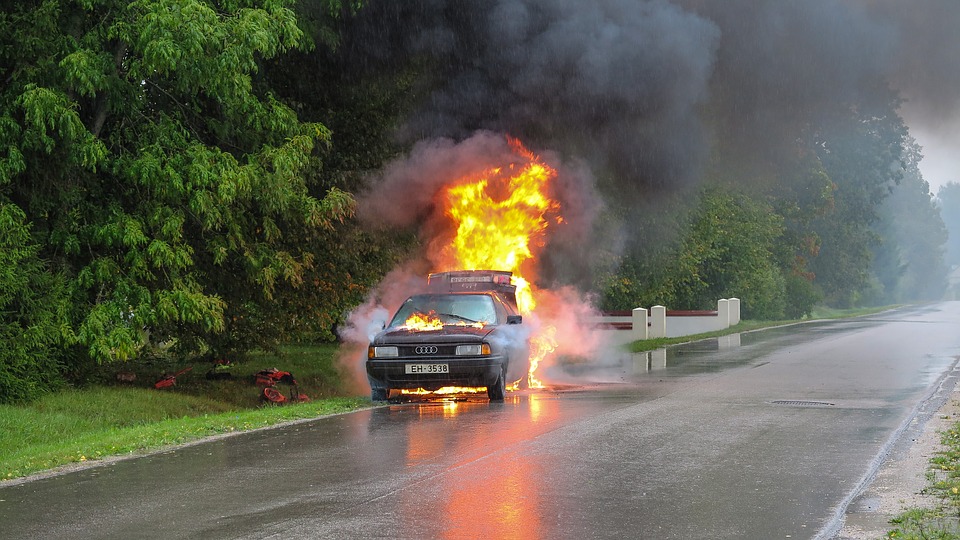83% of Americans say they drive their cars frequently. So there’s a very big chance you fall into this category!
When your vehicle is functioning just fine, you don’t really realize how much you depend on it. But at the first sign of trouble, the worry is sure to set in. After all, you rely on your car to get you everywhere, and with it broken down, how will you get anything done?
For example, with an engine overheating, you might start to panic. But with our tips, you’ll be able to keep your cool. Read on for 7 tips to help with this issue.
1. Shut off Your Car Completely
If you notice that your engine is overheating, the best thing you can do is pull over and shut off your car completely. If possible, give it at least 15 minutes. This gives your engine a chance to stop working so hard and decrease its temperature.
However, this may not be possible to do immediately. In that case, follow some of the other tips to keep the engine temperature from rising any further while you get to a safe place to pull over at.
2. Turn off Your Air Conditioner
We know: it might be unbearably hot and you really need your AC to stay cool while you’re driving. But if you keep operating that air conditioning, your engine is soon going to break down, which means you’ll need to have major repairs done. If it’s bad enough, you might even need to have it replaced.
So if you notice your engine temps rising, you need to turn off your AC. Not only that, but you should also turn the heater on max if it’s not too unbearable for you.
This will actually take the heat from your engine and draw it away. As a result, you can prevent it from completely breaking down.
3. Put Your Car in Neutral
Are you stuck in a traffic jam? Then the stop and go activity might be what’s causing your engine to overheat.
You probably aren’t able to pull over, so here’s something to do if you’re stuck: put your vehicle in neutral. Once you’ve done that, you’ll want to rev the engine. This will increase your radiator fan and water pump’s activity, which will help cool down your engine more.
In addition, use your brakes as little as possible. Whenever your brakes are active, this causes your engine to work harder.
What you can do to decrease brake activity is to wait a little longer to drive forward whenever the car in front of you does. Driving forward with larger gaps means you’re stopping and going less frequently.
4. Check Your Antifreeze Levels
Antifreeze (or coolant) is what keeps your engine from freezing up during the winter. It also keeps your engine from overheating!
As you may have deduced, you need to keep your antifreeze levels up or else you risk overworking your engine. When you’re able to pull over, you need to check this. If you’ve never located the antifreeze reservoir tank before and don’t know where it is, refer to your vehicle’s owner manual for further information.
Once you’ve located it, you need to be very careful when opening the cap, as it may still be hot. Wait a little bit for it to cool down and use a towel to unscrew the cap if needed. Hot steam might come out, so make sure you’re at a safe distance when doing this.
Check the levels and top it off if you need to. Don’t have coolant with you? Then call a friend or family member to have them bring you some.
5. Check the Hoses
If your coolant levels are fine, then there may be something else at play here. For instance, your coolant or heater hosts may have become clogged, blocked, or disconnected. In some cases, they may have even burst!
If you just have a small kink in the hose, try to sort it out yourself. But if they’ve burst, then you need to call a tow truck to come get your car and bring it to an auto shop for repairs.
6. Consider Aftermarket Parts
Some aftermarket parts can help your engine keep cool while driving.
For instance, Snow Performance has a water injection kit that will boost the active cooling of your engine. Not only does this help with the thermal load, but it also stops knocking combustion. It can also decrease the exhaust gas temperature, which gives you an overall better performance with your engine.
As a result, not only will you prevent overheating for your car, but you’ll also extend the lifespan of your engine.
7. Bring Your Car to a Mechanic
Your engine overheating is most likely a sign of bigger problems on your hands. While all the above steps can help cool your engine down in the moment, they’re only temporary fixes.
What you need to do is bring your car to a professional mechanic. They can then thoroughly inspect your vehicle to see exactly what’s wrong.
While it may be something as simple as a disconnected hose, it’s better to be safe than to be sorry. They might be able to identify a potentially dangerous and costly issue, which will save your car from having to be scrapped in the near future.
Is Your Engine Overheating? Then Use Our Tips
Engine overheating can be a real problem, especially if you’re trying to get somewhere important. But now that you have these wonderful tips, at least you know what you can try so the issue doesn’t become bigger and more unmanageable.
Remember to always take prompt action, as you can do irreparable damage if you don’t. Don’t try to save a few bucks by not taking your vehicle to the auto shop. You might end up paying a lot more if you do.
For more informative auto articles, make sure you check out the rest of our blog page!


